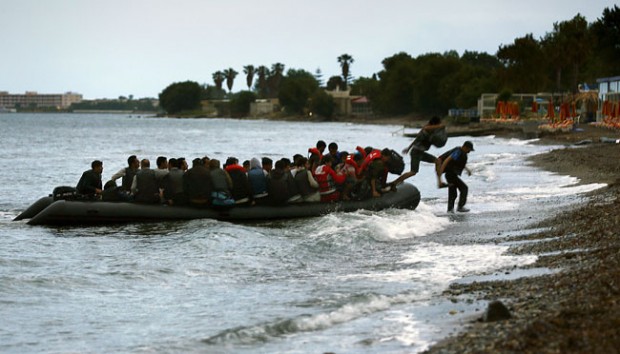4 Reasons Citizenship by Investment Isn’t a Security Threat to the EU
Opinion of the editor
The European Commissioner for Justice, Vera Jourova, has called citizenship by investment programs (CIPs) a “serious security risk”, launched an investigation into the matter, and is preparing a new set of (mandatory) procedural recommendations to European CIP-countries. But CIPs are not the menace to European peace and stability that Jourova – and others – make them out to be. Here are four reasons CBI isn’t a security threat to the EU.
#1 – No citizen’s background is scrutinized as thoroughly as those participating in a CIP
Obtaining a citizenship by way of investment entails subjecting yourself to an exhaustive list of measures designed specifically to weed out individuals who have, have had, and may in the future have nefarious intent or criminal proclivities.
The documentation an applicant must hand over includes (but is certainly not limited to):
- Proving the source of your funds and wealth
- Providing several professional references
- Providing proof of address
- Providing police records from everywhere you’ve lived
- Providing bank statements
- Providing tax receipts
- Providing signed affidavits
In addition, most of the above must be notarized and/or apostilled.
Once a client has undergone the rigmarole of procuring the
But it doesn’t stop there, of course.
The government, in turn, hands the file over to professional due diligence firms – like Exiger, Refinitiv, or IPSA – whose full-time job is to verify your information by any means necessary, be that by calling your boss from 20 years ago to ask whether any petty cash ever went missing during your shifts, or by visiting that house you say you own on the shores of the Caspian Sea to ascertain that it does, in fact, have that 17th-century wine-cellar.
As if this weren’t enough, all your information (including any adverse information uncovered during the aforementioned procedures) passes by the desks of local and international law enforcement such as police and Interpol, often also the US State Department, and security bureaus.
Now, ask yourself: If you were a successful money launderer or an aspiring suicide bomber, or if you had an illegitimate child conceived with a waitress after a conference cocktail mixer in Cleveland in the fall of ’86 (no offense to waitresses – or people from Ohio), why would you embark on a process that has a better chance than almost any other type of background check of uncovering the skeletons in your closet? Especially considering who will hear about it if something is unearthed.
Suppose you had prepared some sinister plot to drive a truck into a Christmas market or to siphon off the proceeds of your pyramid scheme. Why would you willingly give multiple law enforcement agencies your fingerprints, your iris scans, and your cousin’s phone number?
Wouldn’t it be much easier to get into the EU by paying some Lithuanian undergraduate EUR 20,000 for her hand in a pro forma marriage?
#2 – There are many easier and cheaper ways for dangerous people to get into the EU
Beyond suddenly finding love on a Vilnius university campus, plenty of other routes to the EU are more feasible than going through a CIP:
You could overstay your tourist visa or be a stowaway on a cargo vessel, for example.
More than a million undocumented immigrants entered Europe in 2015, and while I’m sure many were honest people with good intentions, we know that quite a few of them were not. I’ll go out on a limb and say they probably weren’t subjected to four-tier due diligence upon arrival at 4 AM on some beach in Sicily.
994,800 individuals obtained citizenship in an EU country in 2016. Of those, fewer than 0.1% came via CIPs.
“The granting of citizenship poses a serious security risk because it gives beneficiaries all the rights of EU citizens and allows them to move freely throughout the Union,” Jourova told Germany’s Die Welt in August. If that’s the case, wouldn’t it be more pragmatic to devote grave concern and media attention to the 99.9% who became EU citizens by routes other than CIPs?

I’m not saying all CIP participants are good people; there are no doubt lugubrious characters in their midst, as in any significantly large sample of individuals. But at least we spend months vetting and building a file on them. CIP applicants are probably the category of immigrants least likely to cause trouble and – if they do so anyway – they are the easiest to find.
#3 – Citizenships can be – and have been – revoked post hoc
Even if individuals of questionable background and intent do manage to get through the needle’s eye of CIP due diligence, the issuing state can still deprive the individual of his or her citizenship later, if the individual in question’s transgression is disconcerting enough to warrant it.
This week, Finnish law enforcement arrested a Russian national holding a Maltese passport (whether he obtained it through the MIIP remains unconfirmed, but it appears likely) on suspicion of involvement in a money-laundering operation.
Under Malta’s Citizenship Act, the Prime Minister may revoke the citizenship of naturalized individuals if they receive a jail sentence of 12 months or more within seven years of becoming Maltese. If the man in question is convicted and sentenced to more than a year in prison, Malta’s government will likely strip him of his citizenship.
Saint Lucia, another example, recently revoked the citizenships of six individuals
#4 – It is in the interest of CIP countries themselves to keep out bad apples
CIP countries run significant risks by naturalizing new citizens of all types, whether through marriage, years of physical residence, or CIPs (although the risk is considerably lower for those naturalized through CIPs, as explained above) because there’s no telling how those individuals will comport themselves in the future.
They may be clean as whistles now but could end up bringing shame, inconvenience, or economic problems to their new home country. The damaging acts of a single individual may, for instance, cause all his compatriots to lose their visa privileges, end up on a travel-ban list, become subject to trade sanctions, etc.
CIP countries really don’t want to naturalize the wrong people; too much is at stake, and the countries in question are perfectly happy to miss out on the tens of millions of euros a year in investments they would otherwise have received from crooks because the alternative is far more costly.
The EU’s Penchant for Tilting at Windmills
Due diligence and thorough background checks on applicants are integral to the proper functioning and risk management of citizenship by investment programs. But the European Commission’s devoting disproportionate amounts of media coverage and time to the class of immigrants that is both the least numerous and the least likely to be delinquent is little more than a frivolous and quixotic pursuit of imagined boogeymen.


